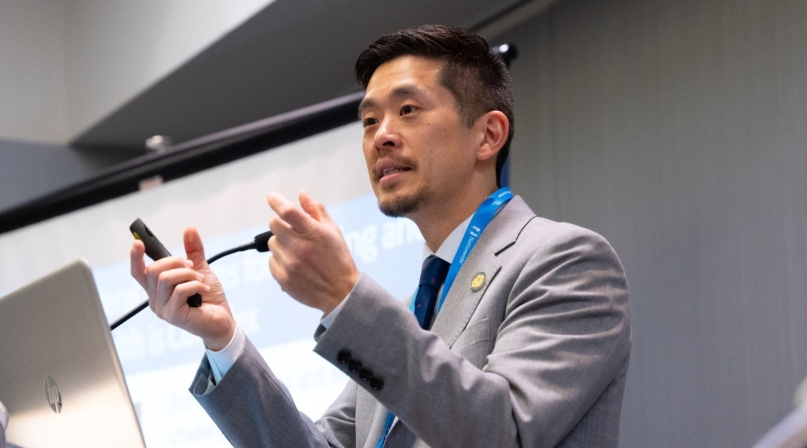HUD, HHS team up to help people with medical needs get stable housing

Key Takeaways
Housing and health outcomes are “undeniably linked,” and counties can use Medicaid as a way to address both, according to Douglas County, Ga. Commissioner Tarenia Carthan.
“The affordability, adequacy, safety and stability of a person’s housing can directly influence their exposure to environmental risks, mental health issues, negative birth outcomes and elevated healthcare costs,” Carthan said. “… Medicaid programs are at the forefront of the national paradigm shift toward a greater focus on social determinants, given its reach to populations with greater social needs, and its ability to be paired with other local social services.”
Housing is merely a “staging ground” for assisting people with complex needs, and ongoing wraparound services are needed to not only help people stay housed, but also to then connect them with broader health care and treatment, according to Richard Cho, U.S. Department of Housing and Urban Development (HUD) senior advisor for housing and services.
Permanent supportive housing is the solution, according to Cho. Individual case management is essential in reaching vulnerable populations who might not seek out support on their own. “People are not service resistant, they’re service ambivalent … so you have to meet them where they are,” he said.
Data has shown that people with permanent supportive housing have better wellness and health care conditions — it reduces the use of emergency departments and inpatient hospitalizations, lowers hard drug usage among those with substance use disorder and creates better outcomes for people living with HIV, Cho said.
Dr. Jessica Lee, chief medical officer for the Center for Medicaid and the Children’s Health Insurance Program (CHIP) Services, emphasized the importance of a “holistic, person-centered” approach to care.
Specific case management, housing and nutrition services are covered services under a new $3.6 billion initiative through HUD and the U.S. Department of Health and Human Services. The Housing and Services Partnership Accelerator will fund 7,000 projects for people experiencing homelessness across eight states and D.C. over the next year. The program will provide technical assistance to states related to services that can be covered under Medicaid and CHIP.
“Medicaid is not supplanting existing housing services, but we’re helping to bridge access to those services and complement what already exists,” Lee said.
While the resources are state-based, the impact is at the local level; counties are where it “all comes together,” Cho said.
“It’s really important that counties are involved, because you are where the buck stops,” Cho said to a room of county officials. “…You all work on housing, on homelessness, on health care.”
Related News

House Agriculture Committee introduces 2026 Farm Bill
On February 13, House Agriculture Committee Chairman G.T. Thompson (R-Pa.-15) introduced the House version of the 2026 Farm Bill, the Farm, Food, and National Security Act of 2026.

Counties Celebrate House Passage of Housing for the 21st Century Act
NACo celebrates the passage of the bipartisan Housing for the 21st Century Act (H.R. 6644) in the U.S. House of Representatives by a vote of 390-9.
County News
Homelessness: the view from Department of Housing and Urban Development Secretary Julian Castro


